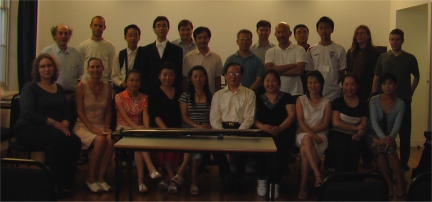

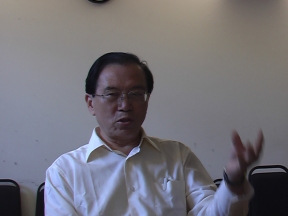 Beijing
alone there are 29 schools specialising in teaching qin. In
Shanghai there are 5 or 6 similar organisations which aim at
popularising qin music. In
Kunming there are three qin schools
on one
street alone. There is one person who spends half of his week in
Tianjin; the other half of the week he spends in Beijing. He teaches qin
in both places. There is one person, a Mr Mao, who teaches in
Nanjing,
Beijing, Suzhou and Shanghai. So we pull his leg and ask him how anyone
can have the energy to do so much! There are two guqin societies at
Nanjing University. There is one at Beijing University, but it has 400
or 500 members who are enthusiastic about qin. In the foreign languages
schools in Beijing there are 40-50 people who want to learn the qin.
Not long ago I received a letter inviting me to be the
guqin consultant at a
university in Guangdong. I had never even heard
of the university, let alone the society. There is a national
university in Hefei, the Chinese University of Science an Technology,
where I have given three lectures. The first was for the
leadership, the second for senior staff, the third for students. Since
these three lectures, guqin music
has become much more popular in Hefei
and there are now concerts and public demonstrations. There is now one
guqin school in Shanghai
which has 600-700 students. Small guqin
concerts can be heard at more or less any time. Theree are
places in
Shanghai where they opened a "guqin room";
on the door they put "the
owner is a student of Gong Yi". Suddenly everything looks wonderful.
That's one aspect.
Beijing
alone there are 29 schools specialising in teaching qin. In
Shanghai there are 5 or 6 similar organisations which aim at
popularising qin music. In
Kunming there are three qin schools
on one
street alone. There is one person who spends half of his week in
Tianjin; the other half of the week he spends in Beijing. He teaches qin
in both places. There is one person, a Mr Mao, who teaches in
Nanjing,
Beijing, Suzhou and Shanghai. So we pull his leg and ask him how anyone
can have the energy to do so much! There are two guqin societies at
Nanjing University. There is one at Beijing University, but it has 400
or 500 members who are enthusiastic about qin. In the foreign languages
schools in Beijing there are 40-50 people who want to learn the qin.
Not long ago I received a letter inviting me to be the
guqin consultant at a
university in Guangdong. I had never even heard
of the university, let alone the society. There is a national
university in Hefei, the Chinese University of Science an Technology,
where I have given three lectures. The first was for the
leadership, the second for senior staff, the third for students. Since
these three lectures, guqin music
has become much more popular in Hefei
and there are now concerts and public demonstrations. There is now one
guqin school in Shanghai
which has 600-700 students. Small guqin
concerts can be heard at more or less any time. Theree are
places in
Shanghai where they opened a "guqin room";
on the door they put "the
owner is a student of Gong Yi". Suddenly everything looks wonderful.
That's one aspect. 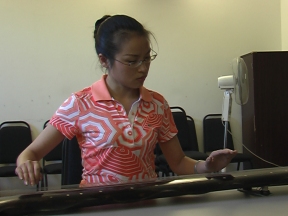 |
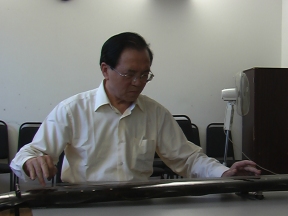 |
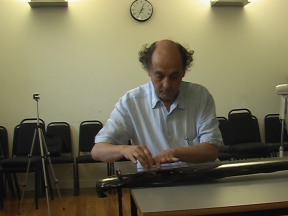 |
| Zhao Xiaomei playing Yi Guren |
Gong
Yi playing Da Hujia |
Christopher
Evans playing Shen Ren Chang |
Copyright the London Youlan Qin Society, 2006. All
rights reserved.